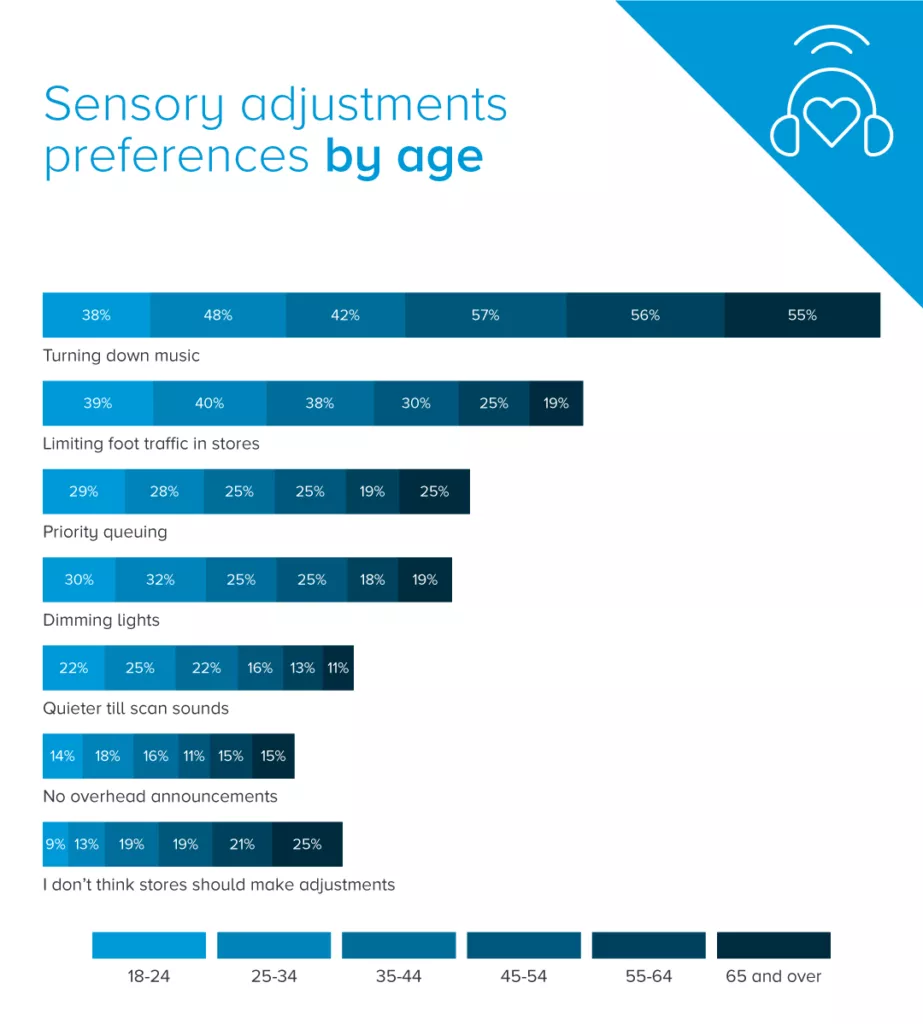Just close to half (48%) of shoppers in the UK are aware of sensory-friendly shopping hours, with awareness among neurodivergent individuals even lower at 38%, according to a new study by Clear Channel UK.
The report is based on a survey of 2,000 people and focuses on diversity in advertising and inclusive shopping experiences.
Sensory processing difficulties are common among neurodivergent people, such as those with ADHD, dyslexia, and autism, to name a few, the report noted.
As many as 69-90% of people with autism experience sensory sensitivities, according to recent NHS studies, making shopping a difficult experience.
This could mean that a significant number of people might avoid grocery stores due to features they find overwhelming,
The report also showed that younger people were more aware of sensory-friendly hours than older generations, with those in the age group of 18-24 (59%) and 25-34 (53%) at the top of this awareness funnel.
In terms of gender, awareness is the highest among non-binary (83%) individuals, followed by women (53%) and men (51%).
Sources Of Discomfort
Respondents identified overcrowding (61%), loud music (46%), bright lights (22%), in-store announcements (12%) and bright colours (11%) as the biggest sources of discomfort while shopping.
Data showed that neurodivergent (49%) people are more likely to leave the store because of loud music than neurotypical people (45%).
Out of the total, half of the neurodivergent people (50%) would leave the store because of loud music, 37% because of bright lights, and one in three (36%) because of in-store announcements.
People in the age group of 45-54 are the most likely to leave a store because of overcrowding (68%), followed by 25-34-year-olds (64%).
The survey also showed that customers aged 18-24 (31%) and 25-34 (30%) are more likely to leave a store because of the bright lights than any other age groups, while shoppers aged 65 and above (50%) said they would leave a store because of loud music.
Suggested Adjustments
Half of shoppers (50%) believe that turning down music would make stores more accessible and improve their shopping experience.
Other adjustments identified by the participants include limiting foot traffic (31%), priority queuing (25%), dimming lights (24%), quieter till scan sounds (18%), and no overhead announcements (15%).

Nine in ten Gen Z respondents think that stores need to prioritise sensory adjustments to make them more accessible.
People aged 25 and over consider turning down loud music in stores as the preferred sensory adjustment.
For 18-24 year olds, the most desired sensory adjustment is limiting foot traffic in stores (39%), data showed.

